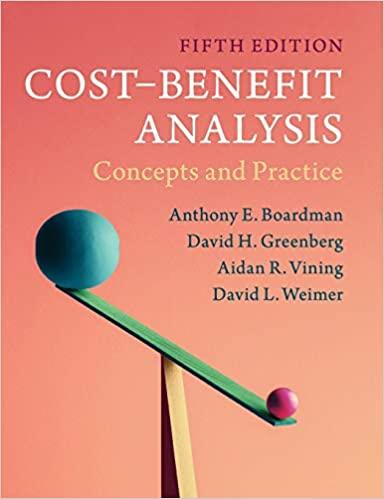Question 1 (40 points) Feather Friends, Inc., distributes a high-quality wooden birdhouse that sells for $40 per unit. Variable expenses are $ 20.00 per unit, and fixed expenses total $180,000 per year. Its operating results for last year were as follows: Sales $1,000,000 Variable expenses 500,000 Contribution margin 500,000 Fixed expenses 180,000 Net operating income$ 320,000 Required: Answer each question independently based on the original data: 1. What is the product's CM ratio? 2. Use the CM ratio to determine the break-even point in dollar sales. If this year's sales increase by $57,000 and fixed expenses do not change, how much will net operating income increase? 4. What is the degree of operating leverage based on last year's sales? 5. Assume the president expects this year's sales to increase by 20%. Using the degree of operating leverage from last year, what percentage increase in net operating income will the company realize this year? 6. The sales manager is convinced that a 11% reduction in the selling price, combined with a $74,000 increase in advertising, would increase this year's unit sales by 25%. a. If the sales manager is right, what would be this year's net operating income if his ideas are implemented? b. If the sales manager's ideas are implemented, how much will net operating income increase or decrease over last year? 7. The president does not want to change the selling price. Instead, he wants to increase the sales commission by $2.10 per unit. He thinks that this move, combined with some increase in advertising, would increase this year's sales by 25%. How much could the president increase this year's advertising expense and still earn the same $320,000 net operating income as last year? Question 2 (30 points) Tami Tyler opened Tami's Creations, Inc., a small manufacturing company, at the beginning of the year. Getting the company through its first quarter of operations placed a considerable strain on Ms. Tyler's personal finances. The following income statement for the first quarter was prepared by a friend who has just completed a course in managerial accounting at State University $ 1,156,000 Tami's Creations, Inc. Income Statement For the Quarter Ended March 31 Sales (28,900 units) Variable expenses: Variable cost of goods sold $ 468,180 Variable selling and administrative 199,410 Contribution margin Fixed expenses: Fixed manufacturing overhead 255,200 Fixed selling and administrative 245,210 Net operating loss 667,590 488,410 500,410 (12,000) $ Ms. Tyler is discouraged over the loss shown for the quarter, particularly because she had planned to use the statement as support for a bank loan. Another friend, a CPA, insists that the company should be using absorption costing rather than variable costing and argues that if absorption costing had been used the company probably would have reported at least some profit for the quarter. At this point, Ms. Tyler is manufacturing only one product a swimsuit. Production and cost data relating to the swimsuit for the first quarter follow: 31,900 28,900 Units produced Units sold Variable costs per unit: Direct materials Direct labor Variable manufacturing overhead Variable selling and administrative $7.20 $7.00 $ 2.00 $6.90 Required: 1. Complete the following: a. Compute the unit product cost under absorption costing. b. What is the company's absorption costing net operating income (loss) for the quarter? c. Reconcile the variable and absorption costing net operating income (loss) figures. 2. During the second quarter of operations, the company again produced 31,900 units but sold 34,900 units. (Assume no change in total fixed costs.) a. What is the company's variable costing net operating income (loss) for the second quarter? b. What is the company's absorption costing net operating income (loss) for the second quarter? c. Reconcile the variable costing and absorption costing net operating incomes for the second quarter. Question 3: (40 points) Toxaway Company is a merchandiser that segments its business into two divisions Commercial and Residential. The company's accounting intern was asked to prepare segmented income statements that the company's divisional managers could use to calculate their break-even points and make decisions. She took the prior month's companywide income statement and prepared the absorption format segmented income statement shown below: Total Company Commercial Residential Sales $855,000 $285,000 $570,000 Cost of goods sold 564,300 153,900 410,400 Gross margin 290,700 131,100 159.600 Selling and administrative expenses 268,000 118.000 150.000 Net operating income $22,700 $13,100 $9,600 In preparing these statements, the intern determined that Toxaway's only variable selling and administrative expense is a 10% sales commission on all sales. The company's total fixed expenses include $76,500 of common fixed expenses that would continue to be incurred even if the Commercial or Residential segments are discontinued, 564,000 of fixed expenses that would be avoided if the Commercial segment is dropped, and S42,000 of fixed expenses that would be avoided if the Residential segment is dropped. Required: 1. Do you agree with the intern's decision to use an absorption format for her segmented income statement? 2. Based on a review of the intem's segmented income statement a. How much of the company's common fixed expenses did she allocate to the Commercial and Residential segments? b. Which of the following three allocation bases did she most likely used to allocate common fixed expenses to the Commercial and Residential segments: (a) sales, (b) cost of goods sold, or (c) gross margin? 3. Do you agree with the intern's decision to allocate the common fixed expenses to the Commercial and Residential segments? 4. Redo the intem's segmented income statement using the contribution format 5. Compute the companywide break-even point in dollar sales. 6. Compute the break-even point in dollar sales for the Commercial Division and for the Residential Division. 7. Assume the company decided to pay its sales representatives in the Commercial and Residential Divisions a total monthly salary of $18,000 and $36,000, respectively, and to lower its companywide sales commission percentage from 10% to 5%. Calculate the new break-even point in dollar sales for the Commercial Division and the Residential Division










